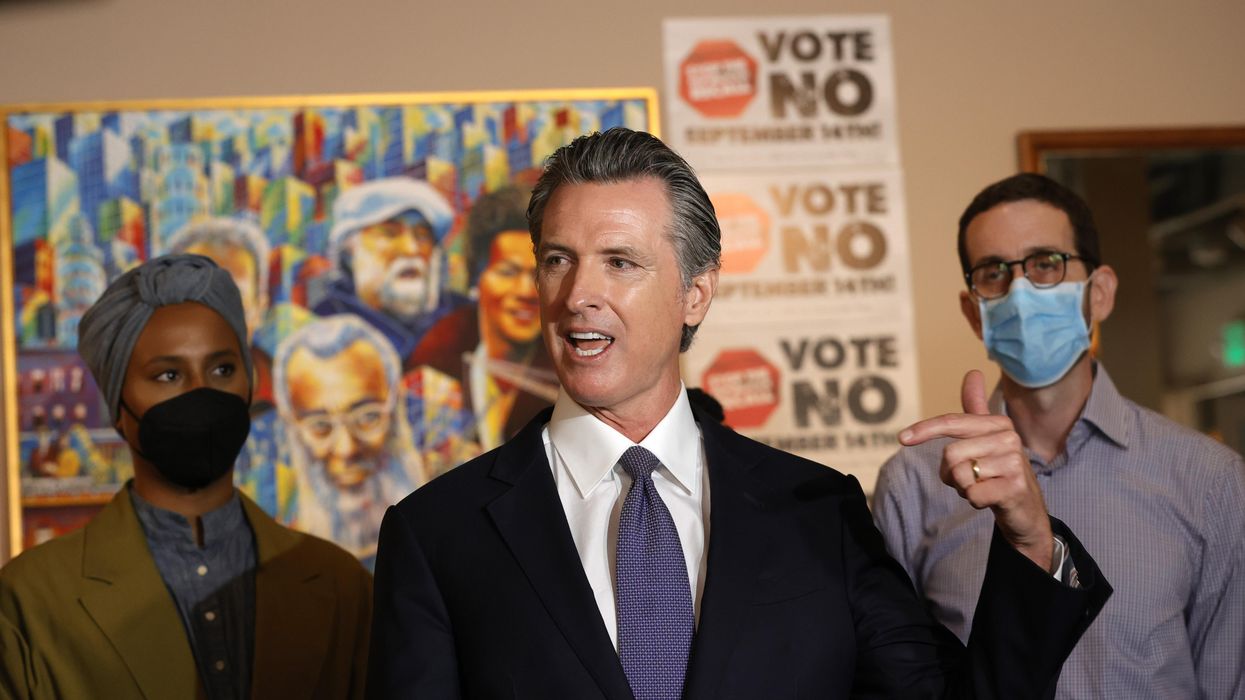Brown is the former speaker of the California Assembly and former mayor of San Francisco. Aftergut is a former federal prosecutor in San Francisco.
Mail-in voting is underway for California's Sept. 14 special recall election. It's a horse race with surveys showing the incumbent, Gov. Gavin Newsom, with a bit of a lead. But polling in recent years has been really far off.
The recall is clearly not what observers have called the Jan. 6 events in Washington, D.C. – an attempted "coup" to overturn an election. But everyone should see the recall for what it is: an effort to do what cannot be done in a general election, namely putting someone in office with far less than 50 percent of the votes cast.
Nice work if you can get it!
Here are four reasons why the recall is an anti-democratic ruse.
1. The rules favor those who want to upset the apple cart of democracy.
None of the 46 candidates running to replace Newsom has to win half the votes. Only the first question on the ballot requires majority approval: Should Newsom be recalled? Opposing the recall requires a "No" vote. If a majority of voters answer "Yes," the candidate with the most votes becomes governor, even if they garner only 25 percent support. Or less.
2. The folks behind it can't win the normal way.
Most of the 46 candidates to replace Newsom, a Democrat, are Republicans. John Cox, who lost to Newsom for governor in 2018, has pumped at least $5 million into TV ad-buys to support the recall and his current candidacy.
Unsuccessful Republican candidates for Congress in Southern California led two of the three groups who initiated the recall.
Orrin Heatlie, a retired Yolo County sheriff's sergeant and leading recall proponent, describes himself as mainstream. But he has major support from the fringes, including the Proud Boys, the militant group whose members are charged with assaulting Capitol Police on Jan. 6.
Heatlie had a 2019 Facebook post that read: "Microchip all illegal immigrants. It works! Just ask Animal control." He has since walked it back as not intended to be taken literally.
On that front, leading Republican candidate Larry Elder mentored Donald Trump's feverish anti-immigration guru, Stephen Miller, and in 2016 emailed him: "I hope to live to see when you are elected President."
3. Millions of taxpayer dollars are being spent on an election that would have happened the right way a year later.
Seven of 10 California voters say it's a waste to spend the estimated $215 million that the special election will cost taxpayers. Newsom would need to face voters in November 2022 anyway if he wants a second term.
Most voters would limit recalls to situations where a governor committed a crime or engaged in indisputably unethical conduct. Newsom did neither. His misstep that energized this recall's backers was his visit to a luxury restaurant during severe Covid restrictions.
Bad optics, for sure, but not a crime or unethical. A vote against the recall would send a message that Californians think the $215 million was misspent and that recall elections should be limited to special circumstances.
4. It could be a stealth way to shift power in the federal government.
We're all vulnerable to accident or illness, including U.S. senators. If a Republican becomes governor through the recall, and a new senator were needed before November 2022, a Republican appointee would swing the chamber to a GOP majority, completely changing control of Congress' legislative branch. Mitch McConnell would be re-anointed majority leader.
That could occur legitimately, of course, if the country votes in 2022 for more Republican Senate candidates than Democratic candidates. But democracy would be undermined if that result were to follow from substantially less than half of California's voters selecting the winning candidate for governor.
The recall can be justified only as a partisan maneuver. Every vote counts, for California and for the nation.




















